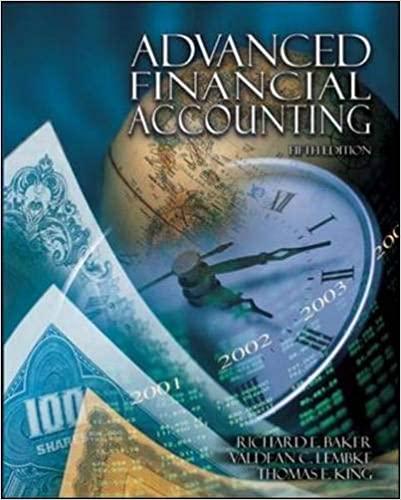Answered step by step
Verified Expert Solution
Question
1 Approved Answer
Required information Excel Analytics 0 1 - 0 1 ( Static ) Cost Concepts [ LO 1 - 2 , LO 1 - 3 ,
Required information
Excel Analytics Static Cost Concepts LO LO LO LO LO
Skip to question
To complete this activity, you will need to have Excel installed on your computer. This activity requires you to work in Excel and answer questions in Connect. You will read a brief scenario and then download an Excel file that you will need to answer the required questions.
For Requirements and you will begin by viewing brief video tutorials explaining how to use PivotTables and PivotCharts. You will then use what you learned to work directly in Excel to answer required questions.
For Requirements and you will begin by viewing a brief video tutorial explaining how to use the SUMIF function in Excel. You will use what you learned to work directly in Excel to answer required questions.
The following information applies to the questions displayed below.
Crispin Companys sales from last year were $ million. The company maintains no beginning or ending inventories. It has assembled all of its costs from last year and would like your assistance in sorting these costs into various categories, depicting them graphically, and preparing traditional and contribution format income statements.
Excel Analytics Static Part
Required:
Refer to the workbook titled ExcelAnalyticsCostConceptsTemplate. Navigate to the Cost Summary tab of this workbook.
Within the Cost Summary tab, click on any cell that contains data. Then use Excels PivotTable function to calculate the companys total variable costs and total fixed costs.
Expand the PivotTable from requirement a to calculate the portions of the total variable costs that would be classified as product costs and period costs.
Using the PivotTable from requirement b calculate the portions of the total fixed costs that would be classified as product costs and period costs.
Using the data from the PivotTable in requirement b prepare a bar chart that includes a total of two bars. The first bar will depict the total fixed costs and the amounts of that grand total that are categorized as product costs and period costs. The second bar will depict the total variable costs and the amounts of that grand total that are categorized as product costs and period costs.
Save your work in Excel, then answer the question below.
Which of the following statements are true according to this bar chart?
Note: You may select more than one answer. Single click the box with the question mark to produce a check mark for a correct answer and double click the box with the question mark to empty the box for a wrong answer. Any boxes left with a question mark will be automatically graded as incorrect.
check all that apply Please make sure this is answered!!!
The fixed period costs are greater than the variable product costs.
The fixed period costs are greater than the variable period costs.
The variable product costs are greater than the fixed product costs.
Step by Step Solution
There are 3 Steps involved in it
Step: 1

Get Instant Access to Expert-Tailored Solutions
See step-by-step solutions with expert insights and AI powered tools for academic success
Step: 2

Step: 3

Ace Your Homework with AI
Get the answers you need in no time with our AI-driven, step-by-step assistance
Get Started


